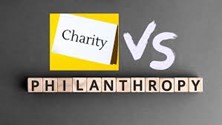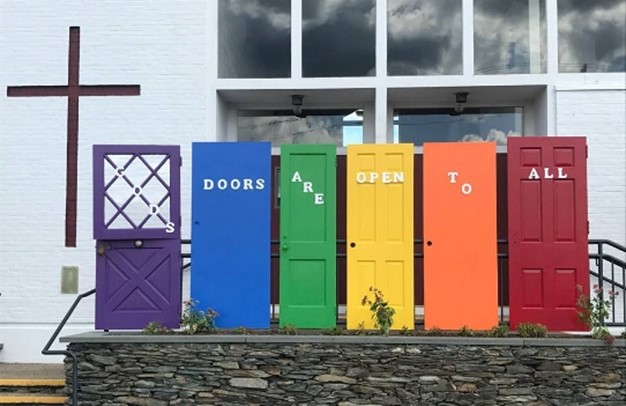by Rev. Racquel Ray
Associate Minister of Congregational Life
Let’s Talk About Money……said NO Pastor ever! Well, that’s not entirely true, is it? We can honestly say that for most of us talking about money is uncomfortable. Especially in a church context, talking about money has become a rather taboo topic.
Sure, we hear about money during the annual church stewardship season. Each church has a different approach for fundraising through an annual campaign of some sort. There are stark differences in how each denomination handles ‘giving’. And the spectrum runs from obligatory tithing to be ‘of good standing’ to mandated percentages to receive salvation, to generosity campaigns. The theological arguments around money precede even Judas’ betrayal of Jesus for 30 silver coins. When we turn to biblical answers for responsible stewardship, we often read of sharing resources as a community and tithing a ten percent offering. A pastor once shared, “You can live better on 90% of your income with God’s blessing than you can on 100% without God’s blessing!”
 Proverbs 22 begins with, “The rich and the poor have this in common: the Lord is the maker of them all” and includes, “Those who are generous are blessed, for they share their bread with the poor.” Biblical answers often revolve around rich and poor dichotomies. If the rich give their money to the poor all shall be well. The problem is that many of us feel poor and don’t feel we have much to give. So, what does it mean to be generous and to live generously? How can we shift our mindset, our lifestyles, and our ministry from poverty toward prosperity?
Proverbs 22 begins with, “The rich and the poor have this in common: the Lord is the maker of them all” and includes, “Those who are generous are blessed, for they share their bread with the poor.” Biblical answers often revolve around rich and poor dichotomies. If the rich give their money to the poor all shall be well. The problem is that many of us feel poor and don’t feel we have much to give. So, what does it mean to be generous and to live generously? How can we shift our mindset, our lifestyles, and our ministry from poverty toward prosperity?
We often hear statements about church and money connected to the concept of church closure. There is also a repercussive reaction to save the church through fundraising. We hear comments like, “We need more money.” Pastors are often in the ‘hot seat’ to answer questions around fundraising. How will you raise money? How will you build the endowment? How will you reduce the budget, cut expenses, reduce spending, and shrink benefits and salaries for employees? And, because pastors are called to preach the gospel, feed the hungry, clothe the naked, welcome the stranger, heal the sick, house the unsheltered, and love their people we’re not often fiscally driven. This usually results in churches turning to financial experts within the congregation who are great with numbers and hopefully are able to navigate the non-profit nature of church ministry and mission as well. Often there is a gap between mission and money which results in church ‘bankruptcy’ and closure and a ‘poverty’ mindset.
 I am bereaved every time I hear, “The church is dying.” This statement is spoken often in the many places I visit: Yale Divinity School and seminarian campuses, denominational gatherings, social media outlets, and national news media. The Church is dying? How do you feel about that statement? I disagree with it and would offer this, “The Church is changing.” And many churches would rather close (or die) than change.
I am bereaved every time I hear, “The church is dying.” This statement is spoken often in the many places I visit: Yale Divinity School and seminarian campuses, denominational gatherings, social media outlets, and national news media. The Church is dying? How do you feel about that statement? I disagree with it and would offer this, “The Church is changing.” And many churches would rather close (or die) than change.
 The difference we need is philanthropy. It is a shift from transactional stewardship giving to a future oriented relational and emotional giving. We often give to church, a prescribed amount, pledged annually in response to the gratitude and joy we find in our church communities, in order to keep the programs and services going. When we shift to a philanthropic mindset toward giving, we are investing in the potential mission of the recipient. We may give to NPR because we believe in the value of unbiased reporting. We may give to our alma mater because we want to see young people have the same opportunities to flourish as we enjoy, we may give to the arts because we believe in the value of cultural creativity.
The difference we need is philanthropy. It is a shift from transactional stewardship giving to a future oriented relational and emotional giving. We often give to church, a prescribed amount, pledged annually in response to the gratitude and joy we find in our church communities, in order to keep the programs and services going. When we shift to a philanthropic mindset toward giving, we are investing in the potential mission of the recipient. We may give to NPR because we believe in the value of unbiased reporting. We may give to our alma mater because we want to see young people have the same opportunities to flourish as we enjoy, we may give to the arts because we believe in the value of cultural creativity.
 What does philanthropy look like in a church context? It’s multi-faceted; individual giving to the church, the church giving to the individual, and the collective congregation giving to the larger community – locally, regionally, nationally, and globally.
What does philanthropy look like in a church context? It’s multi-faceted; individual giving to the church, the church giving to the individual, and the collective congregation giving to the larger community – locally, regionally, nationally, and globally.
We are privileged to be connected with a church that is very visibly intentional about our welcome. “God’s Doors are Open to All” speaks to our outwardly facing advocacy and mission toward inclusion of ALL PEOPLE.
Our members are immersed in some of the most life-changing, community-affirming, and love-abiding institutions, organizations, and businesses in the region. We are clergy members sitting alongside people in their most challenging life events in our work as chaplains. We are presidents and CEOs of non-profit organizations working daily in marginalized communities providing basic needs and resources to make a difference in the lives of our neighbors in need. We are artists, musicians, students, and activists. We are parents and grandparents finding welcome and support for our young people. We are a safe space for children and youth to gather and grow in their faith. We are forward thinking, green and g rowing, community oriented, and partnership seeking. We are a beacon of happiness and a reflection of healthiness. We take a stand and make a statement. We are a church that is growing, future-minded, and that stands as a visible example for others.
rowing, community oriented, and partnership seeking. We are a beacon of happiness and a reflection of healthiness. We take a stand and make a statement. We are a church that is growing, future-minded, and that stands as a visible example for others.
This church is NOT dying. This church is changing. We have an opportunity to not only grow into the future of the church but to be the future of the church and to stand as an example for others of how to do that successfully.
 THAT is something I want to support. I want to support a church that is heading toward a bright future. What does the church of the future look like? It is welcoming to ALL people. It is fluid and flexible. It takes a stand and stands with others. It speaks the truth. It cares for its members and friends. It welcomes the stranger, feeds the hungry, shelters the unsheltered, heals the sick, and clothes the naked.
THAT is something I want to support. I want to support a church that is heading toward a bright future. What does the church of the future look like? It is welcoming to ALL people. It is fluid and flexible. It takes a stand and stands with others. It speaks the truth. It cares for its members and friends. It welcomes the stranger, feeds the hungry, shelters the unsheltered, heals the sick, and clothes the naked.
When I support the church, I’m not doing so to keep the lights and heat on and the bills paid. I am investing in the people that make a visible difference in our community. I’m investing in a future where this church is a beacon of justice, inclusivity, action, and education. I’m investing in a living history that is both rooted and branching. I stand with this church and support this church as a beacon of hope for the future.



